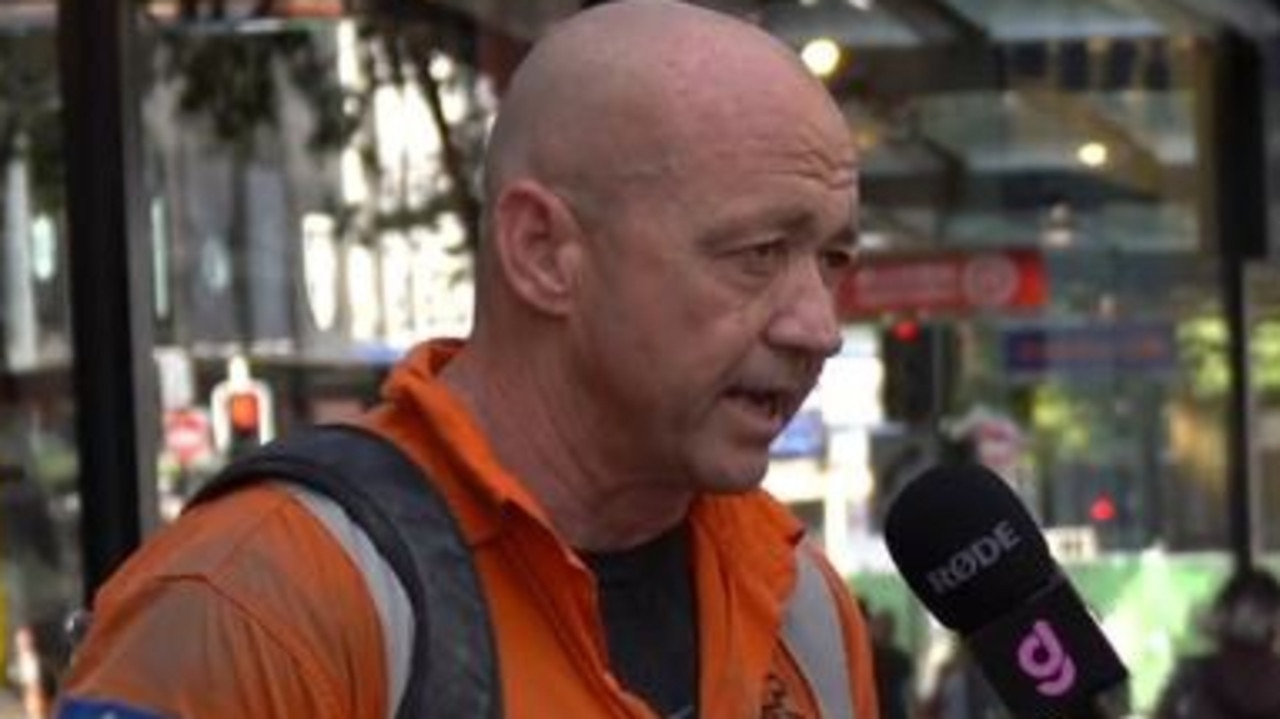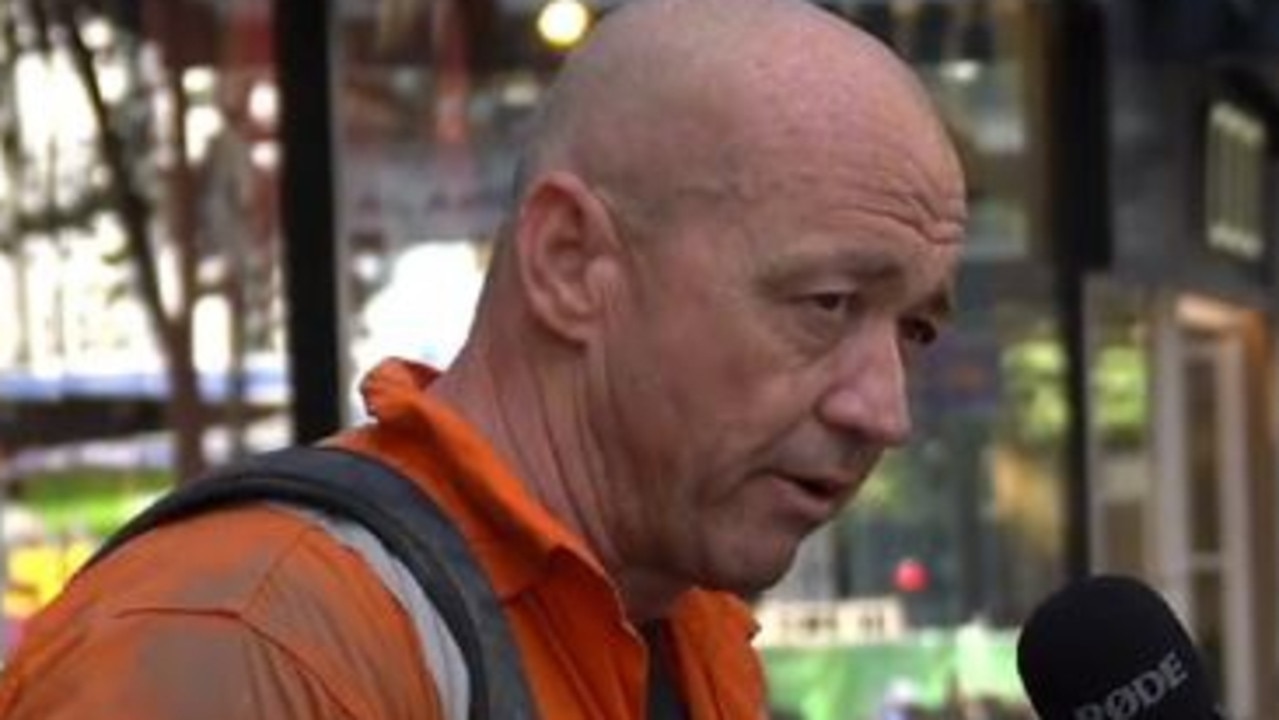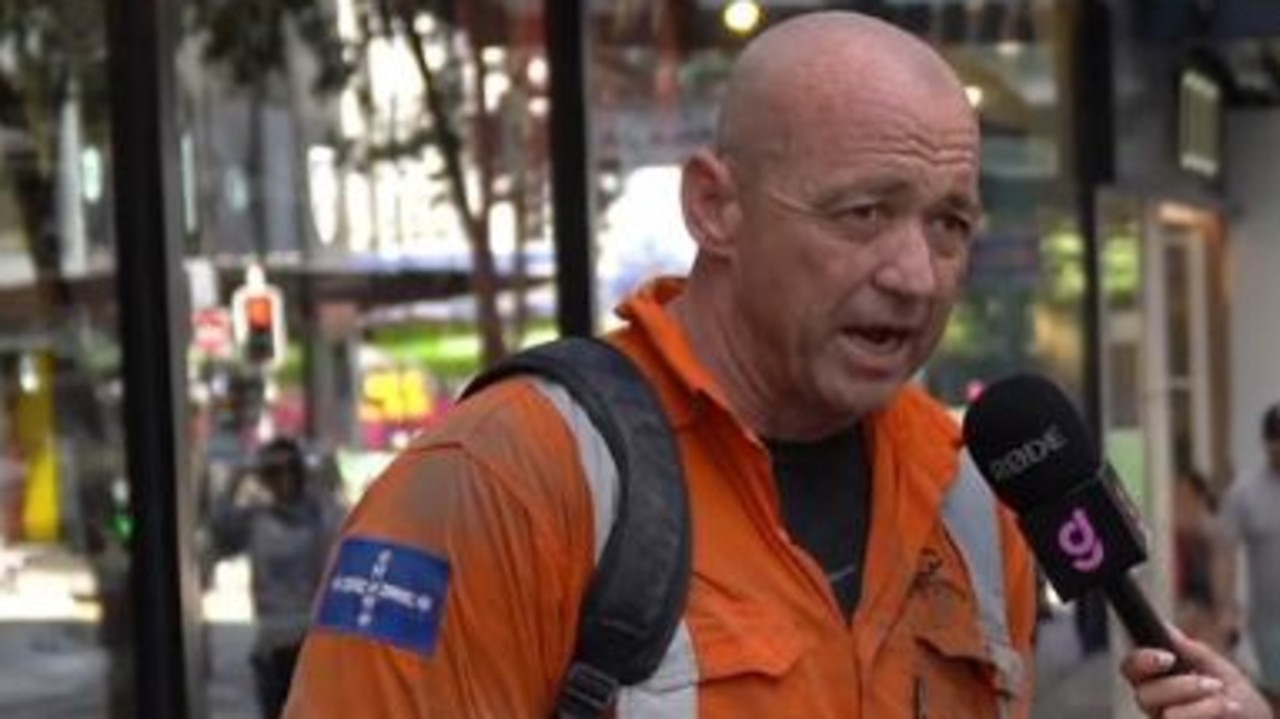Brisbane tradie reveals he is just surviving on six-figure salary, highlight how bad Australia’s cost-of-living crisis has become
A Brisbane tradie has taken the cost-of-living crisis to a new level, revealing he is working to survive despite earning a six-figure salary.

A Brisbane tradie earning a six-figure salary has revealed he is “working to survive”, highlighting the dire toll Australia’s cost-of-living crisis is having on everyday Aussies.
The tradie was stopped for an interview with Getahead, which asked him about his profession and how much money he earnt.
“I am a concrete patcher. I do repairs on concrete work and earn about $2500 to $3000 a week after tax,” he said.
“I work 10.5 hour days, five days a week. If we do a Saturday, which is about six to eight hours, I then take home about $3200 after tax.”

Earning a salary of about $160,000 a year, the tradie said he was “working to survive at the moment”.
“I wish I could win the lotto or something, but this is all right for the time being,” the man said.
He told the reporter while it was a physically demanding job, it could also be the easiest job in construction and advised young people entering the workforce to ditch the phone and put all their energy into work.
Many people commented on the video posted to TikTok, with one person saying people needed to earn more than $200,000 to have a decent life these days.
“$3000 a week after tax is $156,000 a year, that’s a lot of money. I hope he is living below his means to have lots left over to invest in,” another said.

“Working to survive when you make over 3K a week,” a person commented.
“Ten years ago making 100k meant you were doing okay. Now days 100k is poverty,” another person said.
“How expensive is living there, because that weekly is double my monthly salary?” a commenter asked.
Good360 Australia revealed that more than 80 per cent of charities across the country reported community demand for non-food aid, including hygiene and clothing products, had never been higher.

Nearly 60 per cent of the 500 charities involved in the research also reported an increase in people seeking help for the first time.
Salvation Army research also found that many people had reached out for help to the charity because cost-of-living pressures had become too much to manage.
They found it was difficult for 94 per cent of respondents to afford essential living costs such as housing, groceries, health care and utility bills.
They also found 74 per cent of people surveyed reported they could not afford to keep up with rising living costs.



